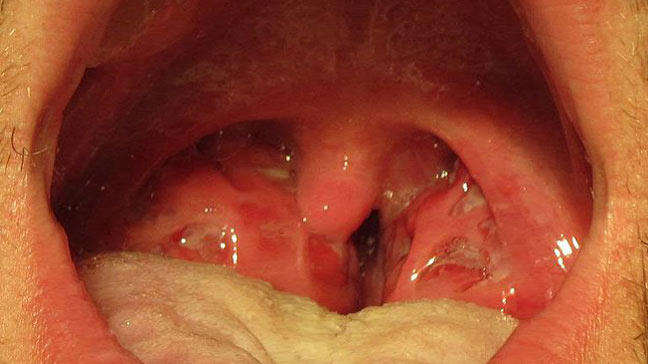Usually caused by group A-streptococcal bacteria, strep throat is a bacterial infection accompanied by fever. It may also lead to the inflammation of the pharynx or pharyngitis. Streptococcus spp. are responsible in about 15-30% of cases of pharyngitis in children. It is a contagious infection, but it is important to know more about strep throat contagious period.Come find out more.
How Long Is Strep Throat Contagious?
If you are infected and do not take antibiotics, you will be contagious for about 2-3 weeks. It is important to keep in mind that you will be contagious for 2-5 days before the appearance of any symptoms. This is usually the time when most people share their germs with others. They usually take steps to avoid infecting others when they do experience symptoms and know they have strep throat.
While strep throat is contagious, the period is usually short for individuals who take antibiotics. You may no longer be infectious after 24 hours of starting antibiotic therapy. Your symptoms will become less severe without a couple of days of taking antibiotics. Even if you do not take antibiotics, your infection will resolve on its own within a week or so. However, you will stay contagious for a longer period. Be sure to talk to your doctor if you are taking antibiotics but have not experienced any reduction in fever and other symptoms after 48 hours.
Studies have confirmed that you are less likely to be contagious the next day of taking antibiotics if your fever has gone completely. Whether or not you have fever will help determine if you are still contagious and can spread germs to infect others as well.
How Will I Know If I'm Having Strep Throat?
 Knowing about strep throat contagious period is important, but it is equally important to confirm if what you are experiencing is due to strep throat. You usually experience symptoms in 1-5 days of being exposed to the bacteria.
Knowing about strep throat contagious period is important, but it is equally important to confirm if what you are experiencing is due to strep throat. You usually experience symptoms in 1-5 days of being exposed to the bacteria.
- You may have strep throat if you develop a fever with a sore throat. The fever in this case will be 102F or higher.
- You will also notice yellowish or whitish pus areas on the throat and tonsils.
- Some people may also experience muscle pain, headache, nausea, and vomiting.
- There will be swollen lymph nodes in your neck if you indeed have strep throat.
- In rare cases, you will develop a rash as well.
How the Doctor Diagnose Strep Throat
Your doctor will check all these symptoms and also consider your medical history before confirming if you have strep throat. They will examine your throat and perform a strep test on a swab for diagnosis. A throat culture test may also help confirm if you have strep throat, but your doctor will start treatment even before the result of your throat culture test arrives.
Ways to Prevent Spreading the Infection
You need to know about strep throat contagious period to understand what to do to avoid spreading the infection. You release tiny droplets containing the strep bacteria into the air when you cough, breathe, or sneeze. Other people become infected when they inhale these droplets. Streptococci can also survive for quite some time on doorknobs, toothbrushes, and other objects, so anyone touching those surfaces will become infected too.
Here are some steps to take to prevent spreading the infection:
- Be sure to wash your hands often to avoid spreading the infection. It is even more important to wash your hands when you are in nursing homes, hospitals, or schools.
- Do not forget to wash your hands thoroughly before and after food preparation. Never forget to wash your hands before eating and after changing a diaper or using the bathroom.
- Be sure to cover your mouth with something when you cough or sneeze. Ask your kids to do the same to avoid infecting others in the home. Wash your hands thoroughly after sneezing and coughing.
- Avoid sharing drinks, food, or place settings with someone who has strep. Use hot soapy water to wash your kitchen utensils and dishes.
- Take antibiotics as soon as you experience any symptoms of strep. Your doctor will take throat culture to confirm the diagnosis and prescribe antibiotics to make you feel better and shorten strep throat contagious period.
It is important to bear in mind that your doctor may recommend a course of antibiotics that may take a couple of weeks to complete. You may start to feel better after a couple of days, but never stop taking your antibiotics until your doctor says so. Not completing your course of antibiotics will increase your risks of developing rheumatic fever and other serious side effects.
